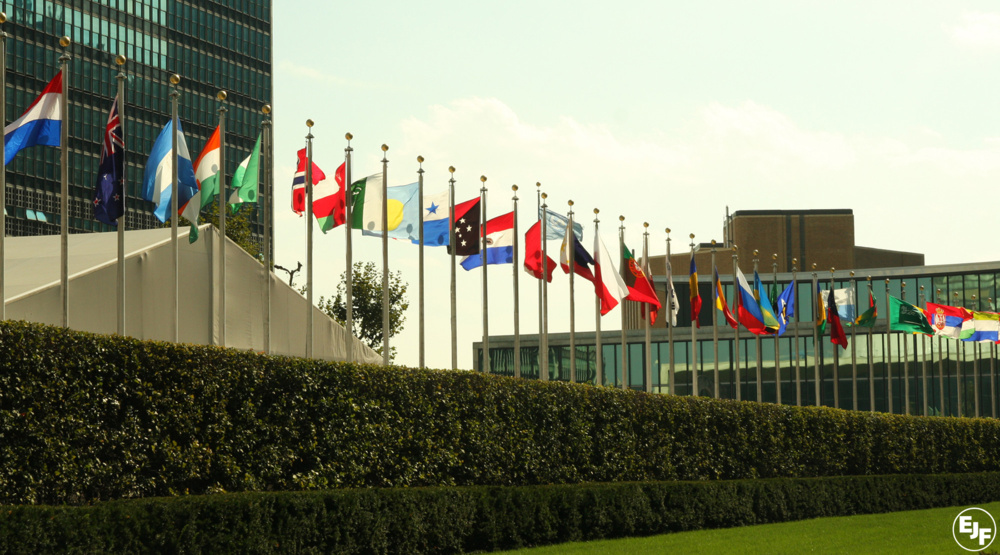
Taking stock of the UN Climate Summit 2014
Yesterday's UN Climate Summit saw a series of world leaders from government, business, civil society and faith communities come together to discuss a collective response to climate change and make pledges ahead of major negotiations in Paris next year.
During a speech from China’s Vice-Premier Zhang Gaoli, the country made its first pledge to take substantial action on climate change by cutting emissions 45% on 2005 levels by 2020. China now leads global emissions, with 2013 figures evidencing that it emits more CO2 than both the United States and the European Union combined.
President Obama’s address, characterised by his hallmark rhetoric, was remarkable for its lack of any meaningful commitment to strong action – although he referred to discussions with Chinese leaders in which they had agreed that the US and China had a responsibility to lead the world on climate change.
UK leader David Cameron argued that he had not reneged on his campaign promise to run the “greenest government ever” and emphasised that the controversial shale gas industry (also known as ‘fracking’) must be part of the solution to climate change.
France and Germany promised $1 billion each to the Green Climate Fund over the next few years, which is designed to assist the worst-affected and poorest nations cope with the impacts of climate change. These trickles come after four long years of drought whilst the total pledged ($2.3 billion) still remains far below the $10 billion target for 2014. The fund aims to generate $100 billion annually from 2020.
UN Ambassador on Climate Change, actor Leonardo DiCaprio, addressed the Summit in an eloquent and articulate speech which referred to accelerating and intensifying environmental global change to emphasise the threat posed to human rights and global security - informing world leaders that they had an opportunity to “make history, or be vilified by it.”
In a parallel announcement, a group of investors – including two of Europe’s largest asset management and pension funds – have joined forces with the United Nations Environment Programme (UNEP) to reduce the carbon footprint of $100 billion worth of investments around the world.
This comes off the back of a call from 348 leading investors last week, collectively representing some 25% of global economic output, for strong action on climate change in order to mitigate risks to existing investments and facilitate the transition to a low-carbon economy.
73 national governments, 11 regional governments and more than 1,000 business leaders – representing more than half of global GDP, world population and greenhouse gas emissions – demonstrated their support for pricing carbon.
30 faith leaders representing nine global religions at the Interfaith Summit on Climate Change released a joint statement urging world leaders to commit to an ambitious programme of action to keep global warming below 2°C. The signatories committed to being advocates for climate justice and the voices of those disempowered and excluded from international forums.
You can explore the pledges from many of the world’s countries on this interactive map.
SIGN UP FOR OUR EMAILS AND STAY UP TO DATE WITH EJF